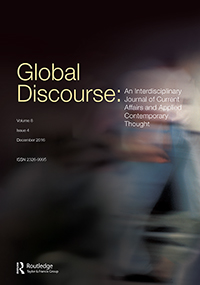By Mathias Delori

As pointed out by military historian Joanna Bourke, ‘the characteristic act of men at war is not dying, it is killing’. This simple observation has led to some important literature on how soldiers relate to the suffering and deaths they cause. This literature has shown that military consent for killing does not have its origins in a pre-discursive biological nature. Rather, it is mediated by powerful meaning structures – such as nationalist narratives or demonized representations of the enemy – that state which lives should be recognized as livable, and which lives should remain excluded from this economy of compassion. This article investigates how military consent for killing is constructed in the context of contemporary Western wars. It does so by focusing on a particular case study: those French soldiers who participated in the war in Libya in 2011. The analysis – based on 40 semi-structured interviews with military leaders and fighter aircraft pilots – reveals a framing of war where enemies are neither framed as an object of hatred nor of ritual sacrifice nor as anything else. They are ‘ungrievable lives’ as expressed by Judith Butler: ‘they are, ontologically, and from the start, already lost and destroyed, which means that when they are destroyed in war, nothing is destroyed’. The article reviews the ideas and materialities that lead to this spectacular case of misrecognition.
Published:
Global Discourse 4 (4), 2014
DOI:
doi.org/10.1080/23269995.2014.935102
Online available:
www.tandfonline.com
PDF:
Killing without hatred: the politics of (non)-recognition in contemporary Western wars
(223.05 KB)